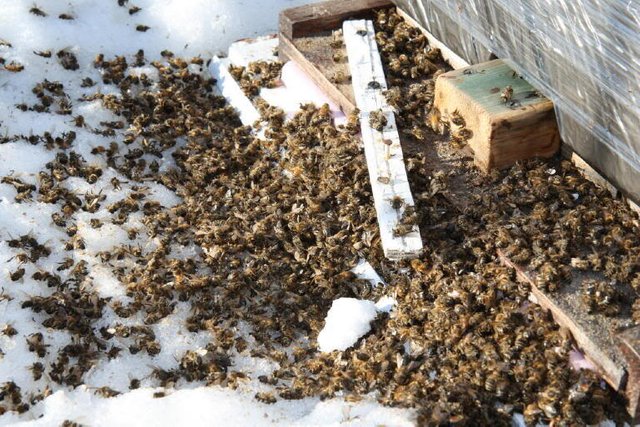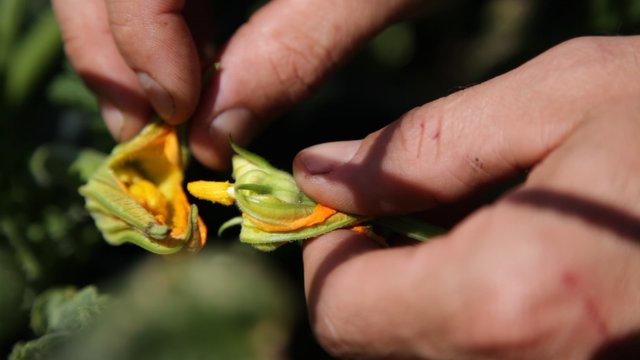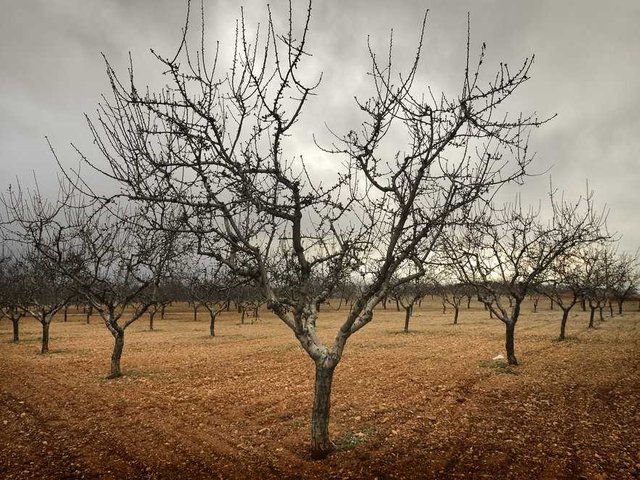Save The Bees: Diminishing Honeybee Colonies Threaten Global Food Production
Approximately one-third of global food production depends solely on the honey bee for pollination of our food crops. Since the early 1990's researchers and farmers have been discovering populations of honey bees mysteriously disappearing or completely dying out altogether. The decline in honey bee populations has been attributed to the over use of pesticides, climate change, parasites/pathogens, and industrial agriculture.

What will the economic impact be if we can't stabilize the honey bee population?
If we are unable to stabilize and reverse the diminishing honey bee population, farmers will have to begin pollinating crops by hand. This means all farms that produce non self-pollinating food crops will have to hire personnel to go through row after row and pollinate each and every individual flowering bud. Yes, it sounds simple and will provide jobs to many people, but it is a little more complicated than that.
These plants will produce a flower that will last for only a few days and if not pollinated in a certain amount of time the flower will dry up and die. Let's say for example a farmer has 100 acres of cauliflower plants that need pollinating. There are many flowers ready for pollinating and he has only 7 days to do it until the flowers begin dying. One acre of cauliflower plants take two men one day to pollinate the flowers. In order to pollinate the entire field in 7 days he would require almost 15 men to do the job. The farmer then has to pay 15 men an entire week's wages.

How will the farmer get his money back for paying those men? He will raise the price of the cauliflower that he sells to distributors. This will lead to exorbitant prices for all non self-pollinating food crops. In other words, if we cannot stabilize the honey bee population then eventually we will see one-third of the world's food skyrocket in price.
How can we begin to stabilize diminishing honeybee colonies?
I believe one of the most important factors affecting honey bee colonies is the over use of pesticides. In industrial agriculture insects are a companies worst nightmare. Large corporations need each and every plant to produce in abundance to make a profit. Therefore, they use large quantities of pesticides to ensure every crop has the best chance to flourish. But, it is the large quantities of pesticides that are used to eliminate the bad insects that is endangering the very insects (honey bees) they need for pollination.
Stabilization of diminishing honeybee colonies will be difficult and may never take effect until scientists can create a type of pesticide that will eliminate crop destroying insects without affecting honey bee populations. I also do not see large agricultural companies eliminating the use of pesticides altogether any time soon.

This is what an orchard might look like if there were no bees.
We may soon see a time when every farm will have to pollinate entire crops by hand, a $15.00 apple, and an economic crisis in agricultural producing countries.
+1 I am starting a permaculture farm. I also have a flow hive I want to get placed. I need to build a Langstroth box before next spring. The bees are under pressure that is for sure. Why is anyone's guess. I suspect it's gmo's
It could be a number of factors . We definitely need to start taking this seriously and look for alternate ways to eliminate crop destroying pests without harming the honey bees.
It's really a shame. I remember growing up and seeing honey bees all around, in backyard flower beds and in the forest. Now all I can seem to spot are wasps, honets and bumblebees.
I agree. They use to be everywhere. I haven't seen one in probably a couple of years now.